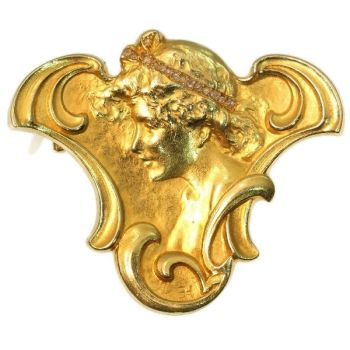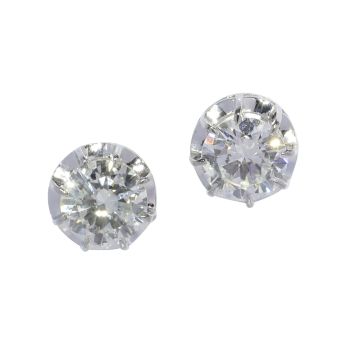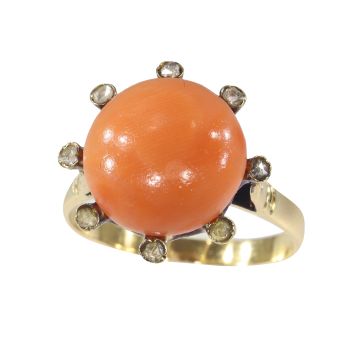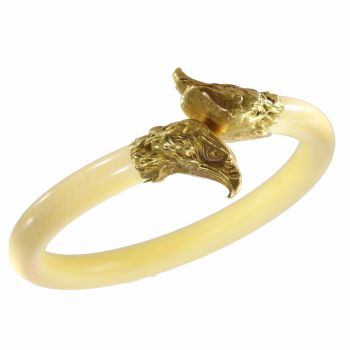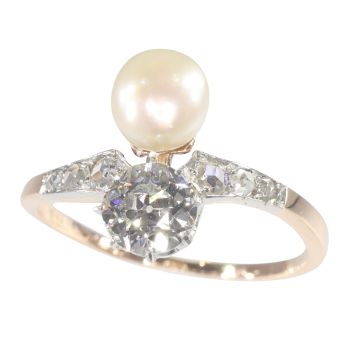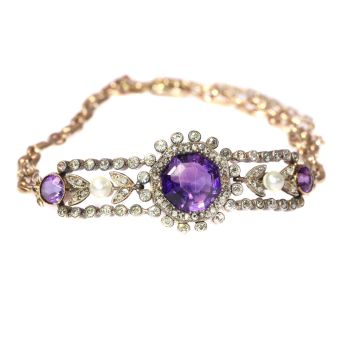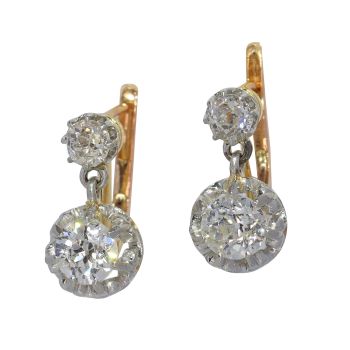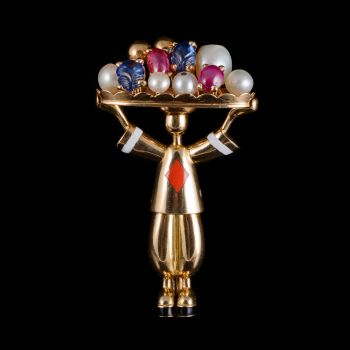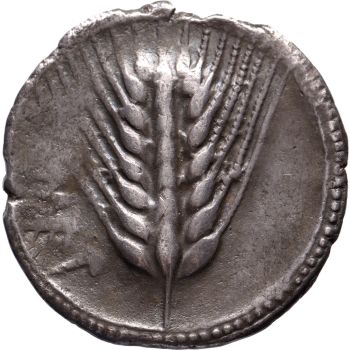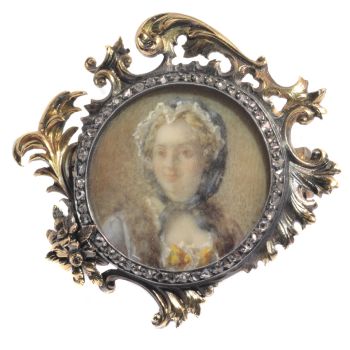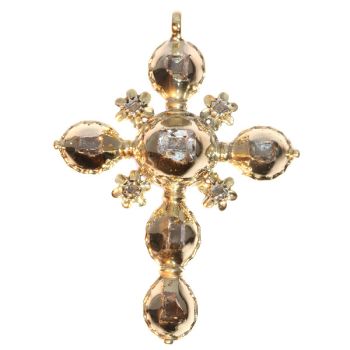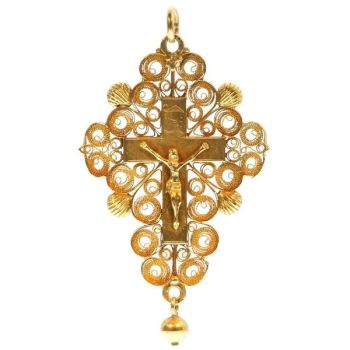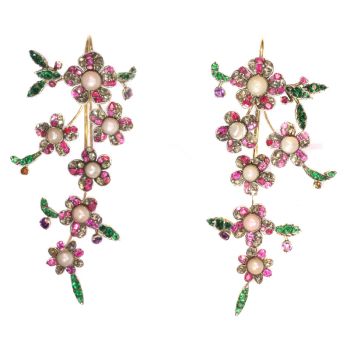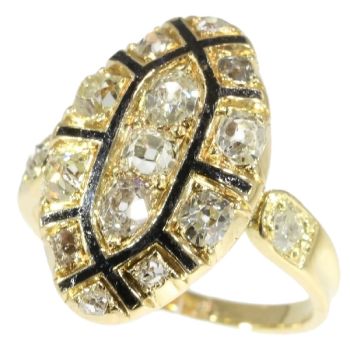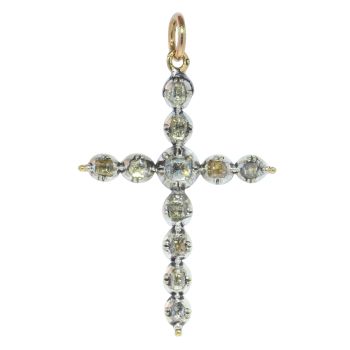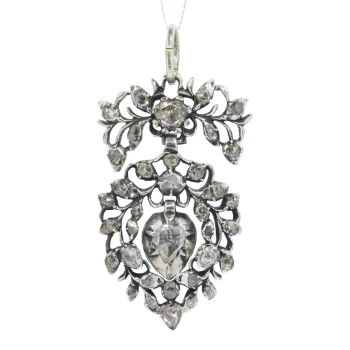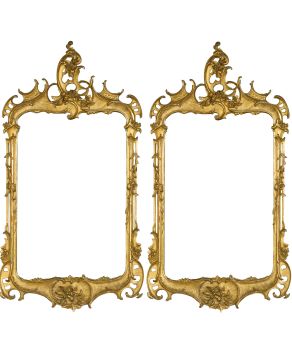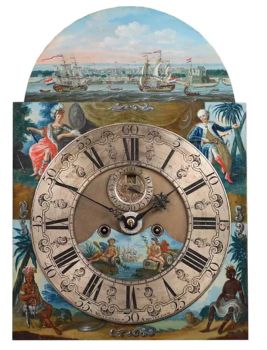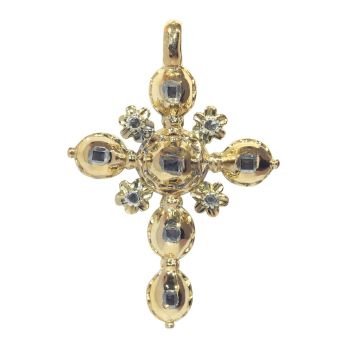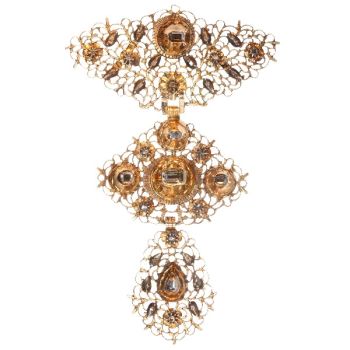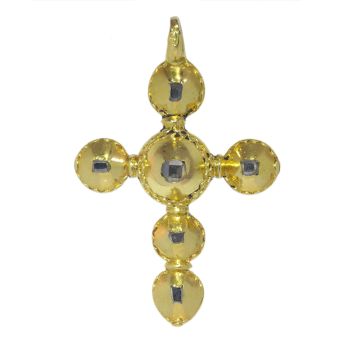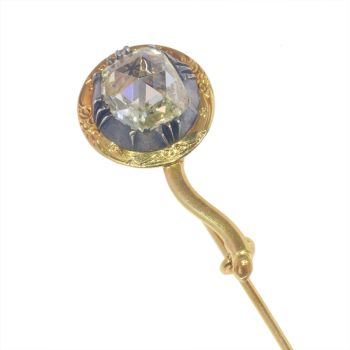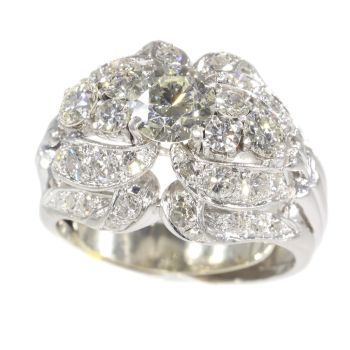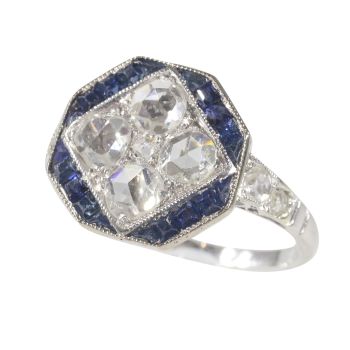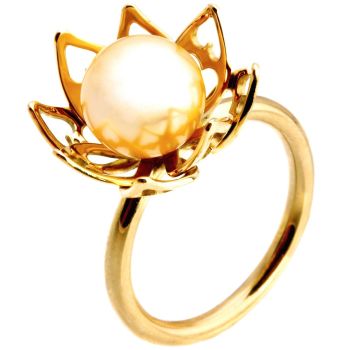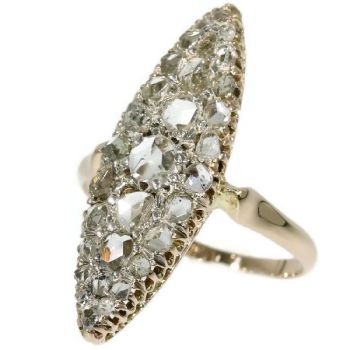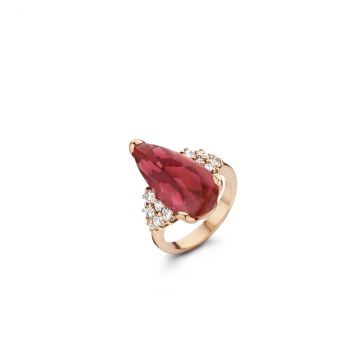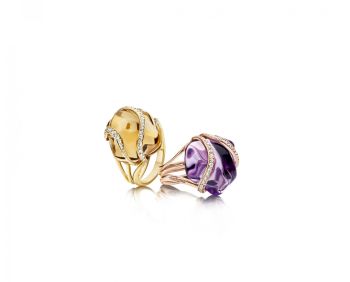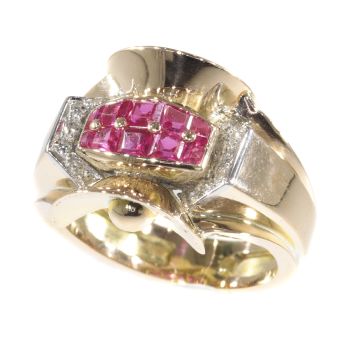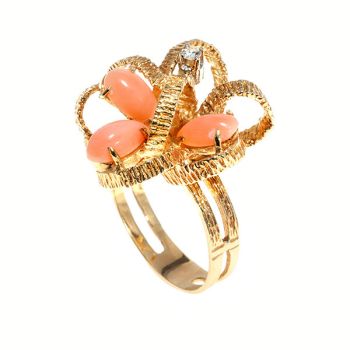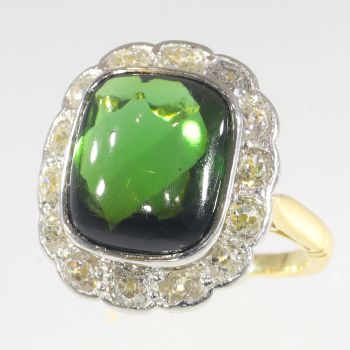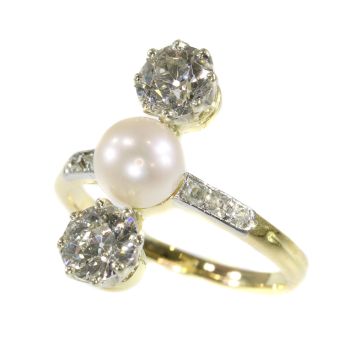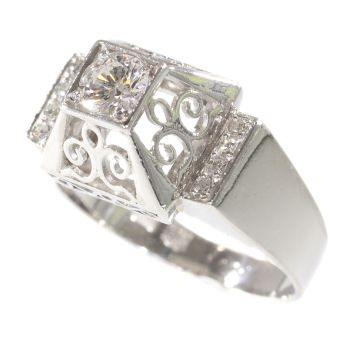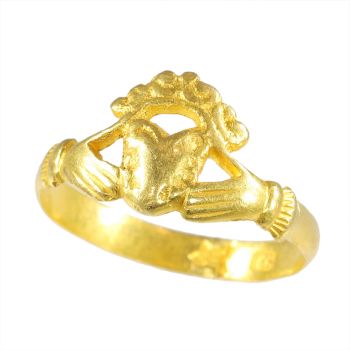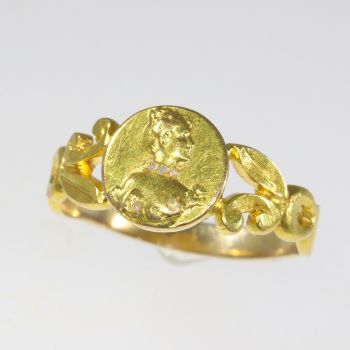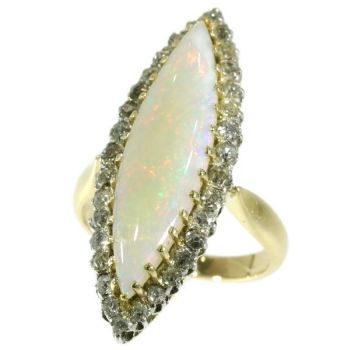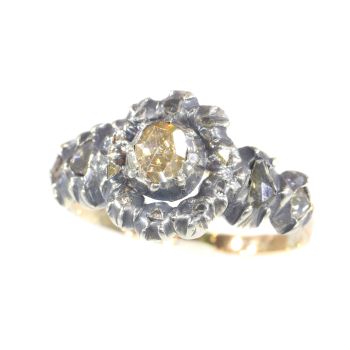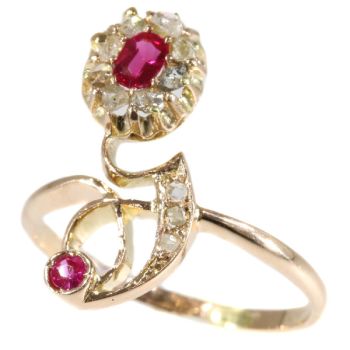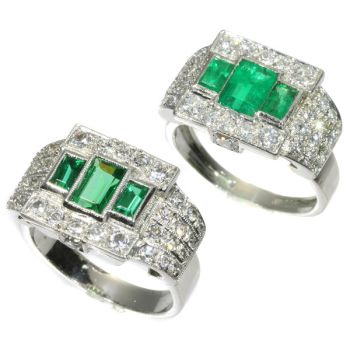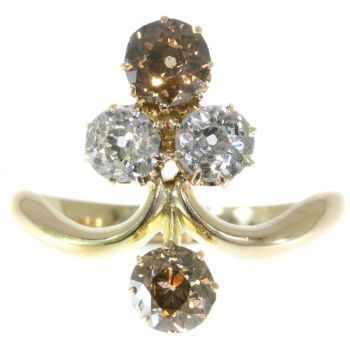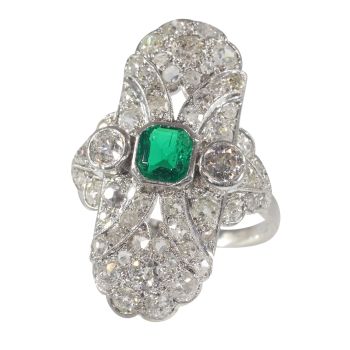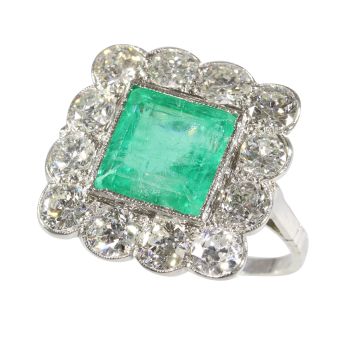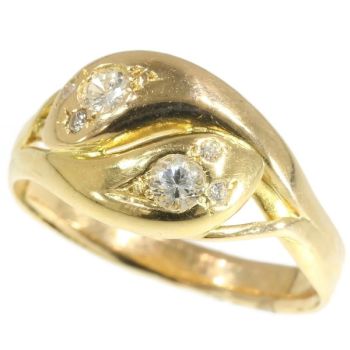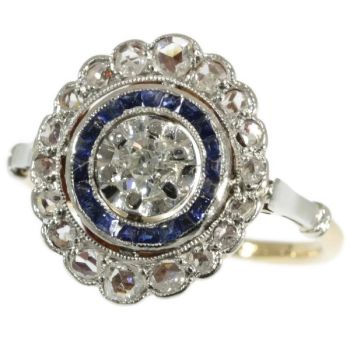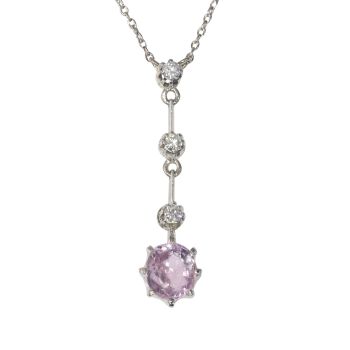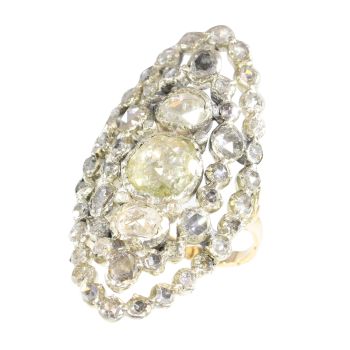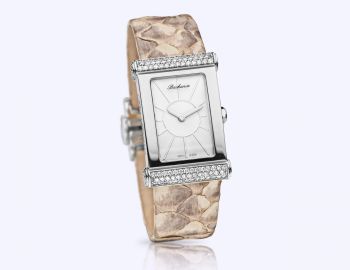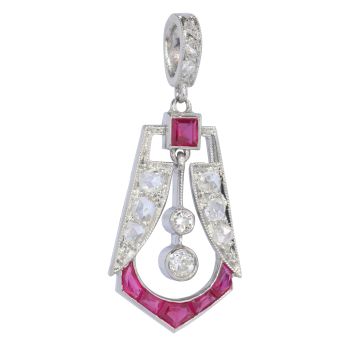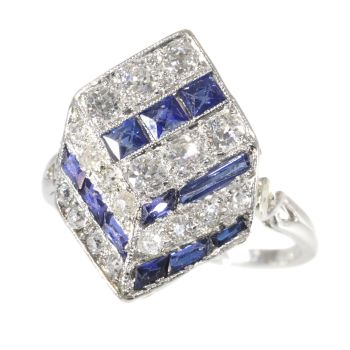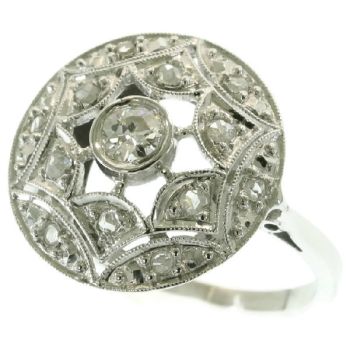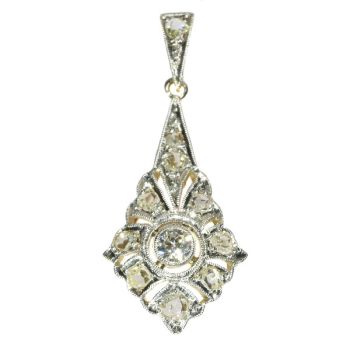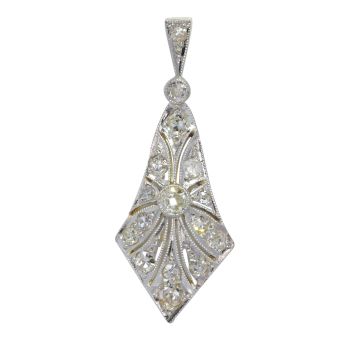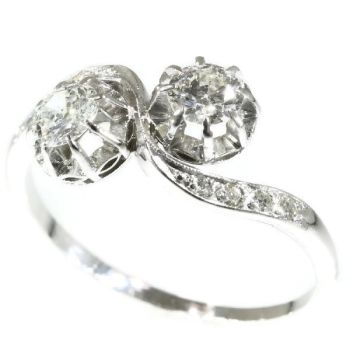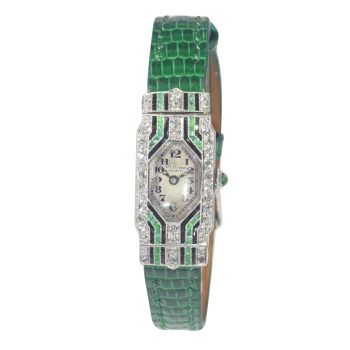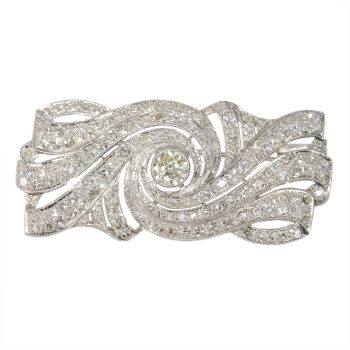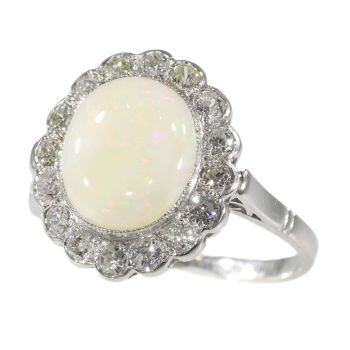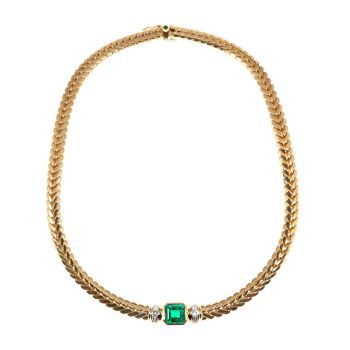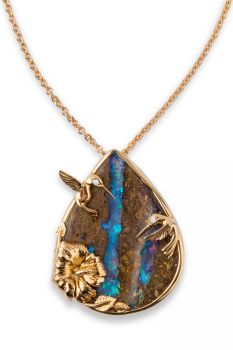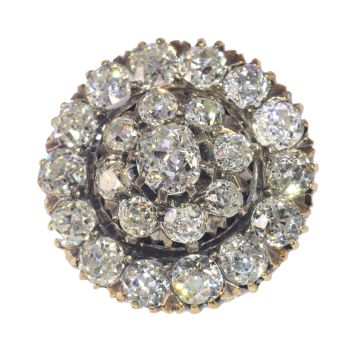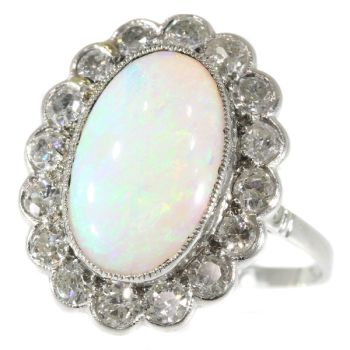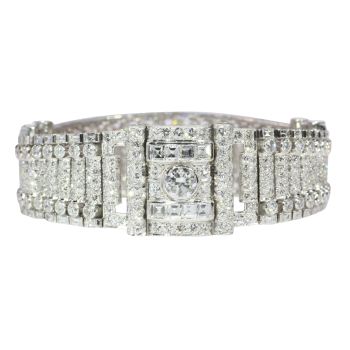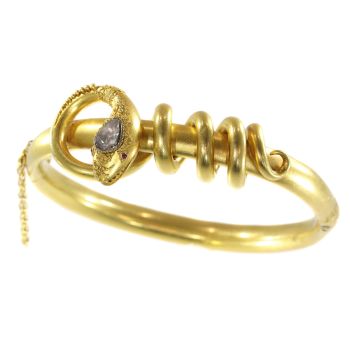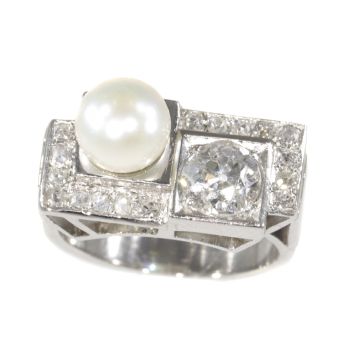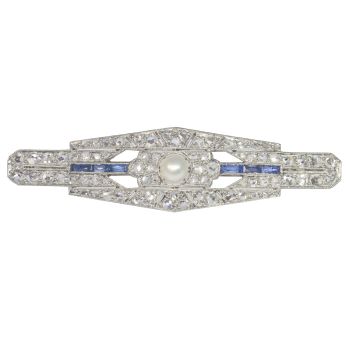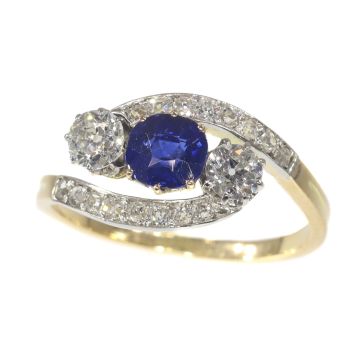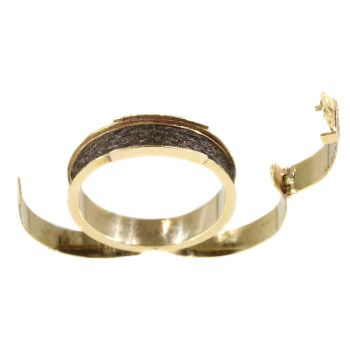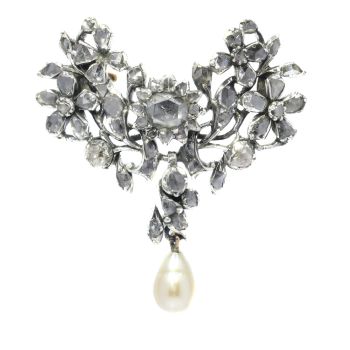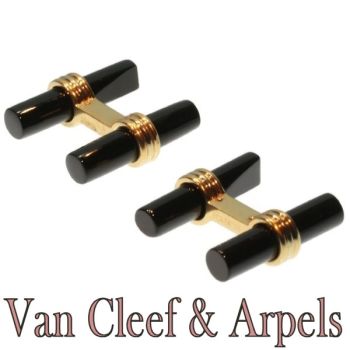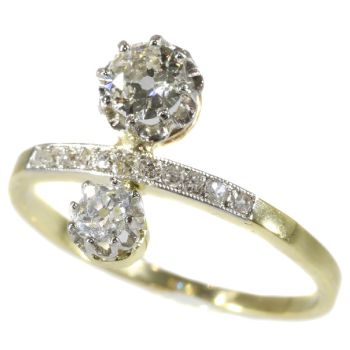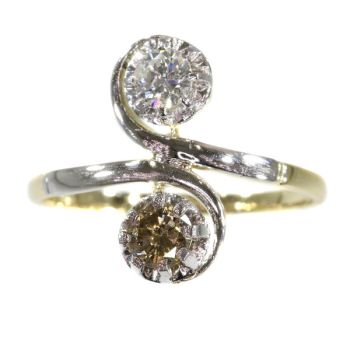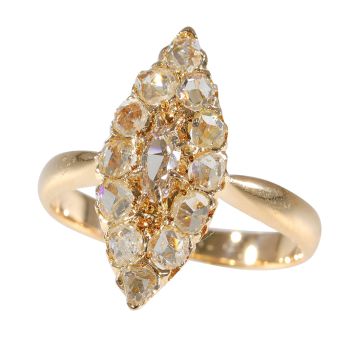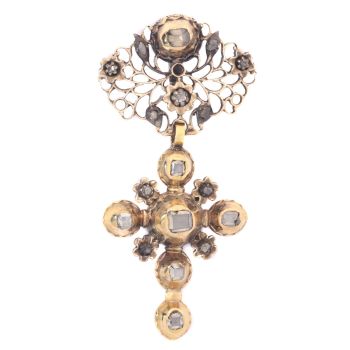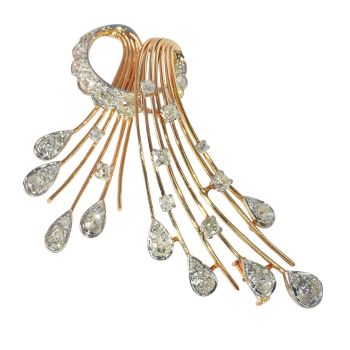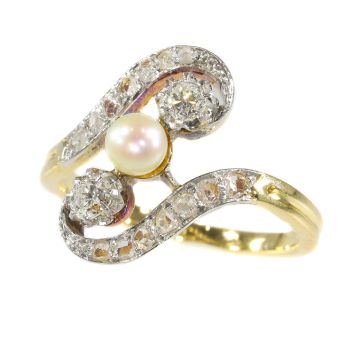Crowned Heart: An 18th-Century Rococo Diamond Ring of Rare Beauty 1730
Artiste Inconnu
Adin Fine Antique Jewellery
- Sur l'oeuvre d'art
A masterpiece of early 18th-century Rococo elegance, this enchanting ring features a crowned heart motif, formed by a large, pear-shaped rose-cut diamond at its centre. Each diamond, set on foil-backed silver, shimmers with a lustre evocative of theera's opulence. Crafted in 14K pink gold, its intricate design reflects the ornate beauty and playful spirit of the Rococo period, a true testament to artistry. Bearing a Dutch hallmark, it invites admiration as a rare and exquisite symbol of love andloyalty, resonating deeply with the heritage of a bygone era.
Antique jewelry object group
ring
Condition
very good condition
more info on our condition scale
Country of origin
Although it bears no discernible control marks indicating its origin, there is a Dutch hallmark present, typically used for older items submitted for re-assessment. This does not guarantee it was actually made in the Netherlands. However, the 14K goldcontent could serve as an indicator, as this is a hallmark characteristic of Dutch craftsmanship, though it remains an uncertain attribution.
Style
Rococo - Rococo (less commonly roccoco) also referred to as "Late Baroque" is an 18th century style which developed as Baroque artists gave up their symmetry and became increasingly more ornate, florid, and playful. Rococo rooms were designed as totalworks of art with elegant and ornate furniture, small sculptures, ornamental mirrors, and tapestry complementing architecture, reliefs, and wall paintings. It was largely supplanted by the Neoclassic style. In 1835 the Dictionary of the French Academystated that the word Rococo "usually covers the kind of ornament, style and design associated with Louis XV's reign and the beginning of that of Louis XVI". It includes therefore, all types of art produced around the middle of the 18th century inFrance.
See also: Rococo
more info on styles
Style specifics
Rococo is a style of decoration that followed, c.1730, the baroque style in France (where it was also called rocaille), the principal features of which are asymmetry of ornament and a repertoire consisting to a considerable extent of rockwork, shells,flowers, foliage, and scrollwork. It was developed in France under Louis XV, 1715-74, and spread to Italy, Germany, and Austria and to a lesser extent to England.
Period
ca. 1730
Events & facts of this era, poetry of this era, fashion of this era.
Source of inspiration
Love and romance
Theme
A crowned heart - In jewellery, a crowned heart symbol often represents love, loyalty, and fidelity.
Material 14K
pink gold and details in silver (touchstone tested)
more info on precious metals
Technique
The rose cuts are set on foil. This is a special technique that was used to bring the lustre of the diamonds to its best quality.
Diamonds
Onelarge and seven smaller rose cut diamonds. We do not have the weight of the diamonds which is normal in our trade when it comes to rose cuts.
- All diamonds, regardless of their size or shape, in our vintage and antique jewellery are verified as 100% natural by the IJGC laboratory.
- We do not sell lab-grown (synthetic) diamonds.
Birthstones
Diamond is the birthstone (or month stone) for April.
more info on birthstones
Hallmarks
A Dutch hallmark representing the letter "i" (1852-1889) for articles that were already old or antique when given to be checked by the essay officed or antique when given to be checked by the essay office (used from 1852 till 1889).
more info on hallmarks
Dimensions
band width top of ring 1,42 cm (0,56 inch)
see picture with a ruler in millimeters and inches
Weight
2,30 gram (1,48 dwt)
Ring size Continental EU: 56 & 17¾ , Size USA: 7½ , Size UK: O½
Resizing
Free resizing (only for extreme resizing we have to charge).
more info on ring sizes
Adin Reference Nº
24246-0398
Copyright photography
Adin, fine antique jewellery
Additional information
our latest acquisitions
jewelry glossary
wall of fame
visit us in Antwerp
subscribe to our mailinglist
- Sur l'artiste
Il peut arriver qu'un artiste ou un créateur soit inconnu.
Certaines œuvres ne doivent pas être déterminées par qui elles sont faites ou elles sont faites par (un groupe d') artisans. Les exemples sont des statues de l'Antiquité, des meubles, des miroirs ou des signatures qui ne sont pas claires ou lisibles, mais aussi certaines œuvres ne sont pas signées du tout.
Vous pouvez également trouver la description suivante :
•"Attribué à …." A leur avis probablement une oeuvre de l'artiste, au moins en partie
•« Atelier de …. ou « Atelier de » À leur avis, une œuvre exécutée dans l'atelier ou l'atelier de l'artiste, éventuellement sous sa direction
•« Cercle de… ». A leur avis une oeuvre de la période de l'artiste témoignant de son influence, étroitement associée à l'artiste mais pas forcément son élève
•« Style de … ». ou "Suiveur de ...." Selon eux, une œuvre exécutée dans le style de l'artiste mais pas nécessairement par un élève ; peut être contemporain ou presque contemporain
•« Manière de… ». A leur avis une oeuvre dans le style de l'artiste mais d'une date plus tardive
•"Après …." A leur avis une copie (quelle qu'en soit la date) d'une oeuvre de l'artiste
•« Signé… », « Daté… ». ou « Inscrit » À leur avis, l'œuvre a été signée/datée/inscrite par l'artiste. L'ajout d'un point d'interrogation indique un élément de doute
• "Avec signature ….", "Avec date ….", "Avec inscription …." ou "Porte signature/date/inscription" à leur avis la signature/date/inscription a été ajoutée par quelqu'un d'autre que l'artiste
Êtes-vous intéressé par l'achat de cette oeuvre?
Related artworks
- 1 - 4 / 12
Onbekende Kunstenaar
A Surinam-themed Amsterdam long-case clock1746 - 1756
Prijs op aanvraagZebregs & Röell - Fine Art - Antiques
 Gecureerd door
Gecureerd doorGallerease Magazine
1 - 4 / 14- 1 - 4 / 24
- 1 - 4 / 24
- 1 - 4 / 12








